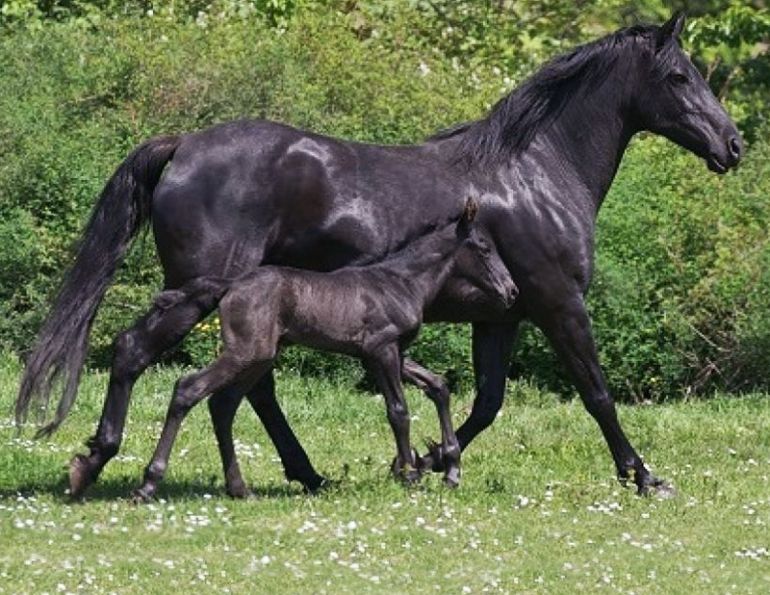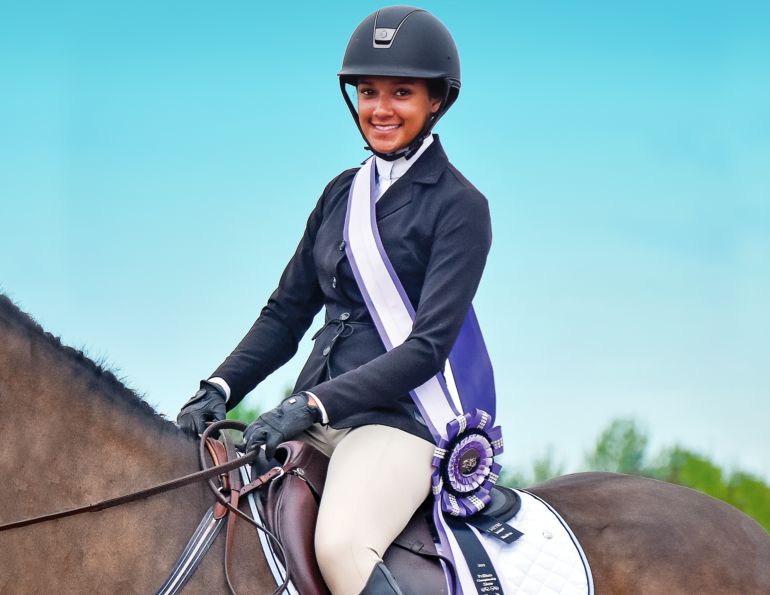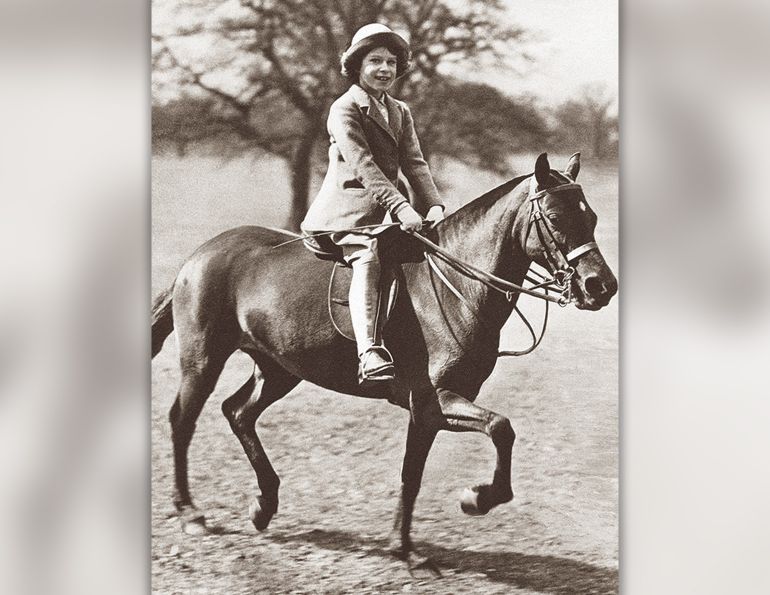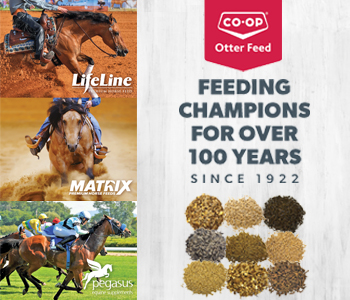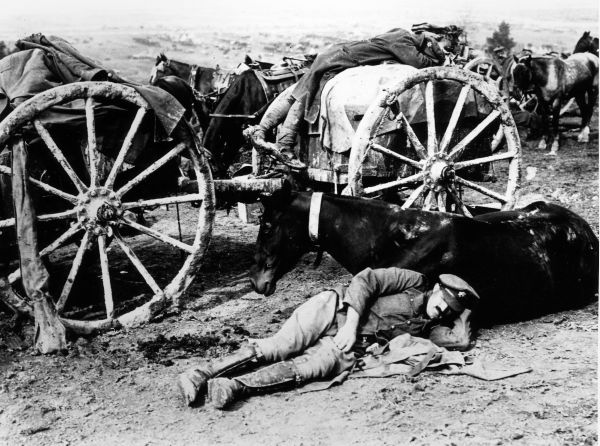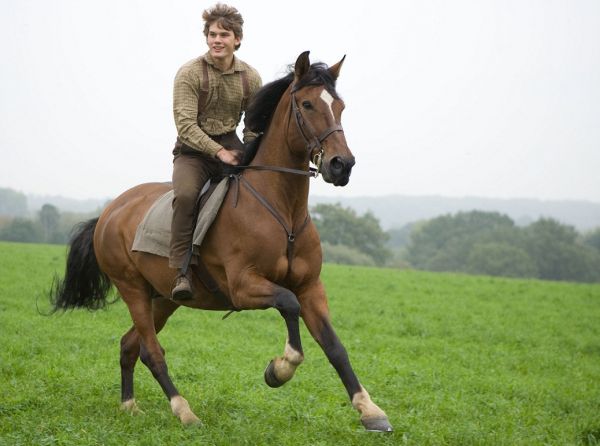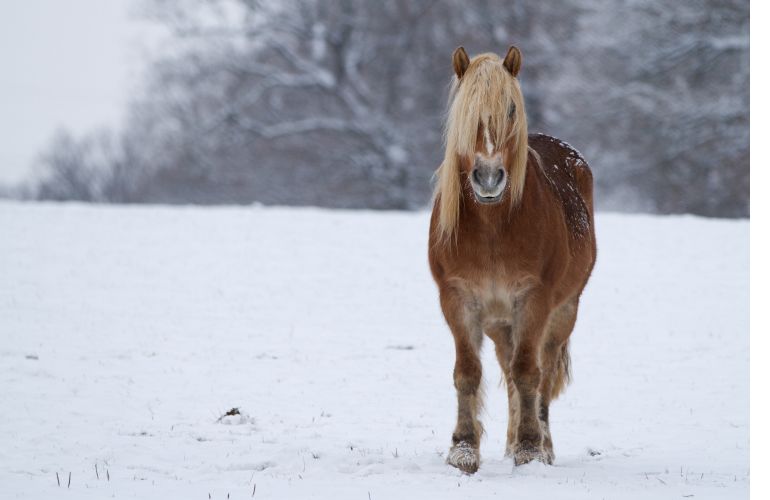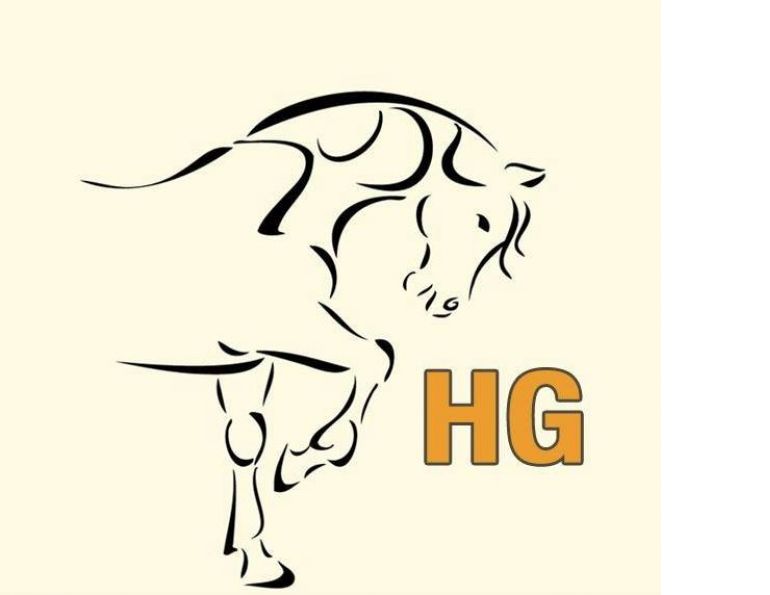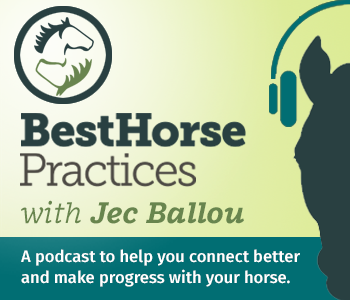Celebrating 75 Years of Horses in the City
By Emily Penn
When we think about horses and equestrian sport, most of us conjure up images of the rural countryside: wide open spaces, lush green grazing fields, remote country roads. Rarely does horseback riding come to be associated with busy traffic thoroughfares, public transportation systems, and walkability to urban conveniences such as coffee shops, grocery stores, and retail shopping. But in Vancouver, British Columbia, there exists what is commonly referred to as a horse lover’s paradise, an urban oasis, and one of the city’s last hidden gems. What started three-quarters of a century ago with a vision of a shared community facility has evolved into one of North America’s most unique and beautiful equestrian communities.
But this historical, idyllic setting is not immune to the threat of urban sprawl and influx of foreign money into the Vancouver real estate market. Southlands Riding Club, the facility that is very much the heart of this community, and those charged with securing its future, are working to ensure horses remain a part of Vancouver’s landscape for generations to come.

Sally Brown Koelzer and her leased horse, Macy. Sally has been a Southlands Riding Club member for over 20 years. Photo: Southlands Riding Club
Southlands Riding Club (the Club) is located 15 minutes from the downtown core of Vancouver, British Columbia, nestled between golf courses with the Fraser River to the south and the community of Kerrisdale to the north. The Club encompasses 16 acres of Vancouver’s last remaining agricultural land reserve, offering members and competitors access to seven riding rings – including one indoor arena and one covered arena with open sides – a half-mile track, large grass event field, covered and open lunging rings, small cross-country course, event stabling, and a clubhouse. In a city where space is at a premium and housing prices continue to skyrocket, the fact that horses are still able to find a place within the city limits is remarkable.
Founded 75 years ago and originally referred to as the Southlands Riding and Driving Club, the Club was the product of a group of equestrian enthusiasts living along what is now South West Marine Drive. The Club founders had a vision to create a shared equestrian facility easily accessible to the numerous local barns and stables in the neighbourhood; they felt it made good economic sense for horse enthusiasts to pool their assets to create and maintain a single large equestrian complex for daily use, and for hosting riding competitions. A conscious decision was made to not keep horses stabled on Club property as this allowed the space to serve the maximum number of riders; there was no need to give up a large part of the footprint of the property to permanent stabling and associated turnout areas, as well as bedding and feed storage, and manure holding. And at the time of the Club’s creation, there were more than enough public and private stables to accommodate those who wished to ride within the city limits.
Fast forward 75 years and many things in Southlands remain the same. Riders access the Club from local public or private boarding facilities and barns, and with the exception of the horses and ponies who are part of the Club’s rescue and rehabilitation program, no other animals permanently reside on Club property. However, as this historic equestrian community has grown in desirability with the general population and the large lots became increasingly valuable, many homes are being purchased by those with little or no interest in equestrian pursuits. This, in turn, has resulted in numerous stables both large and small being leveled to create sprawling luxury homes. Where barns and stables are left standing, many have been converted to spaces for housing exotic automobiles or simply sit vacant as the property owners dislike the lack of privacy afforded by having horses boarding on their property. While those residents who do support the equestrian community are invaluable to the future of the Club, there is concern, as the loss of any of the few existing public boarding facilities (some with upwards of 30 stalls) could pose an enormous threat to the viability of this unique and historic facility.

The weekly “Sunday Ride.” A group of riders get together every Sunday morning to ride through the Southlands roads and trails. Photo: Ingo Neufeld

Margot Vilvang is affectionately known as the “mayor” of Southlands. She was the recipient of the 2018 Horse Council BC Volunteer of the Year award and is a dedicated instructor and volunteer with the Club. Photo: Ingo Neufeld

SRC President, Whitney Santos, and her mother enjoying the Christmas Day walk around Southlands. Every year during the Christmas Day Ride many of the Southlands riders and members of the community come out on foot and on horseback to enjoy the community. Photo: Ingo Neufeld
Southlands is a designated equestrian community and functions quite unlike most equestrian facilities. Where stables generally have one or two coaches at the helm and a cohort of riders for whom they provide training and instruction in a single discipline – be it hunter/jumper, dressage, eventing, Western riding, etc. – Southlands Riding Club is home to more than 18 certified coaches serving riders of diverse interests, ambitions, and ages. Outside the Club gates, but just a short ride away, an even larger number of coaches – many also holding Equestrian Canada (EC) certification - teach students in smaller private or public boarding-barn rings. Many of these riders are the novice junior and amateur riders who will eventually gain the skills and confidence necessary to make the short on-road trek to the Club for more advanced training and access to the Club’s facilities.
However, not all who make the journey to the Club are seasoned riders. The Club is home to the Vancouver division of the Pacific Riding for Developing Abilities (PRDA) program, an Equine Rescue and Rehabilitation Program, and the Vancouver Pony Club. It also provides its facilities at no cost or low cost to programs providing equine-assisted learning and therapy. These programs are important to the future of riding as a sport, as they provide opportunities and access to the world of horses.
Vancouver Pony Club, founded in 1946 by Col. and Mrs. T. D. Sutherland in Southlands, has played a vital role in providing young riders with the knowledge and skills necessary to both ride and care for horses and ponies. Several evenings each week, “Pony Clubbers” meet in the Clubhouse to learn about horsemanship, stable management, and leadership. They then apply these skills and are tested in them at various barns and facilities around the neighbourhood, and they also travel to local competitions where they represent the Vancouver branch against other Pony Club branches from across the province. The Club provides its facilities at no cost to the Vancouver Pony Club for testing purposes and for their annual spring horse show, as well as hosting special events such as the Prince Phillip Cup.

Because there are no horses boarded at SRC except for the rescue program horses, everyone rides along the roads to get to the Club. Photo: Southlands Riding Club
The Southlands Rescue and Rehabilitation program provides many individuals with a passion for horses an opportunity to work with and alongside horses on a voluntary basis. The Club has a strong cohort of volunteers who clean stalls, feed, and groom on a daily basis. The horses benefit from the attention and human interaction – which for many is also their first truly positive human contact after coming from lives of neglect or abuse – and the volunteers benefit from the opportunity to interact and form bonds with these animals. Since its inception in 2015, the program has found new homes for many deserving horses and prides itself in carefully matching horses and owners to ensure long-term homes for these animals. The first horse to graduate from the program, Missy Blue, was saved from an auction where her fate was to be sent to slaughter. Under the careful and patient training of Club instructor Kaya Hunter this mare blossomed into a beautiful and dependable mount, and was eventually purchased by Elyssa Kaufman, a student of Hunter.
“Being the first recipient of a rescue horse graduate from the Southlands Riding Club was and still is an incredible experience,” says Kaufman. “Missy Blue has exceeded all expectations. Being able to witness the change from a frightened little mare to a confident, kind, loving, and well-trained horse is truly remarkable. Thank you Southlands Riding Club and Kaya Hunter for giving me the opportunity to give Blue her second chance.”
The Vancouver branch of PRDA has been operating out of the Club for 45 years and is another prime example of the facility’s important role in providing access to horses within the city limits. Twice each year – for six-week periods in spring and fall – children who would not otherwise have the opportunity to benefit from therapeutic riding come to the Club and experience the joy of riding. Club members willingly relinquish access to the indoor arena during PRDA sessions so that children, ponies, volunteers, and parents can stay warm and dry during Vancouver’s often inclement spring and fall seasons. Southlands horses and ponies are provided for use at no cost, and the entire program is staffed by volunteers – many of whom are or were Club members – relieving parents of any financial burden.

Horses are tucked away everywhere in Southlands, with most barns holding a maximum of six to ten horses, and some just two or three. Photo: Ingo Neufeld

Many barns in Southlands have access to fields, and some provide options for others to rent the field for weekly turnout. Photo: Ingo Neufeld

SRC member Natasha Reid racing in the annual gymkhana at Southlands Riding Club. Photo: Ingo Neufeld

A drill team practices at Southlands Riding Club. Photo: Ingo Neufeld
One of the things that makes the Club so special is its accessibility. With the next-closest riding facilities for Vancouverites located in neighbouring Richmond, Delta, and Langley - and with growing traffic congestion issues similar to other major urban centres - what maps as a 30-minute one-way trip often takes more than 90 minutes during peak traffic. For many, this type of time commitment – on top of already busy work, personal, and family commitments – is simply unfeasible. Riding in Southlands affords the ability to go from the office or school to the barn in less time than it would take to get onto the highway alone. An after-work or after-school ride doesn’t mean sacrificing bedtime with the kids or missing dinner with friends. For most, the higher costs of boarding and riding in the city are offset by less frequent trips to the gas station and fewer kilometers racked up on the odometer.
Riders lacking the time or finances needed for full-time horse ownership are in good company in Southlands. The majority of riders in this equestrian community part-lease as a means of affording their horse habit, averaging three days a week in the saddle. For many, sharing the costs and time commitments means not having to give up their passion for riding while concurrently balancing a career or family. As one local rider notes, Southlands allows you to “work right in the heart of the hustle and bustle of downtown Vancouver and end your day with an evening ride at the barn by 5:30 pm… it’s amazing!” For young riders, Southlands’ accessibility by public transportation, bike, or foot makes it easier to get to and from the stables after school or on the weekends without relying on parents or caregivers. Making horses accessible to this next generation is of vital importance to the future of the sport.
With over 400 members and upwards of 100 horses coming through the gates each day, the Club serves as much more than just a place to ride. In Vancouver where a sense of community can be difficult to find, Southlands brings people from across the city together, with a love of horses serving as the driving force. Celebrating successes both in and out of the saddle - weddings, births, graduations - as well as sharing the burden of misfortune and loss, there is a network of support that most would cite as being unparalleled outside of this equestrian community. From sharing news of inclement weather and potential riding hazards on the road through the “Southlands ISO” Facebook page, to setting up buddy-rides for those who have horses that are new to the concept of traversing the roads to the Club, you can see examples of this amazing community on a daily basis. “Everyone is supportive and helpful no matter what level of horse person you are… if you need anything, there is someone in Southlands who will help you out,” says long-time Club member, Liz Stone.
It’s not uncommon to have someone post that they need a bale of hay or a certain type of feed to tide them over until their next delivery, and within minutes to have multiple offers to not only fill the need but to drop it off at the individual’s barn. It is this tremendous sense of community spirit that most who leave the Southlands area will say they miss above all.
On any given Sunday morning, visitors to the community are likely to encounter upwards of 20 horses and riders on the weekly “community ride,” often led by the Club’s current Board President, Whitney Santos, and her trusty 20-something gelding, Tango. The riders go from barn-to-barn, picking up riders as they go. The horses, like the riders, range in age and experience, but everyone is welcome, and both horses and riders enjoy this break from 20-meter circles and bending lines exercises. It’s a time for conversation, laughter, and often discussions of securing the future of this amazing community for coming generations.

Local junior rider Clare Carmichael competing in the SRC 2 and 3/4 Phase event – a weekend event in June where day one is dressage and day two is show jumping and cross-country. Photo: Ingo Neufeld

Jackson Nerland, 2018 member of the SRC Board of directors, competing in the Southlands Spring Show. Photo: Ingo Neufeld
The Club is also home to numerous events throughout the year including schooling shows, provincial level competitions, clinics, and polo tournaments. While two of the annual dressage competitions are gold-level EC events drawing top horses and riders from across the province and beyond, the majority of Club events are bronze-level competitions. The Club has purposefully maintained a focus on offering bronze-level events as part of its mandate is to support grassroots-level equestrian sport. Providing affordable opportunities for up-and-coming youth riders, as well as adult amateurs wanting to challenge their skills, is something for which the Club takes great pride. The Club provides all the advantages of A-circuit showing at a much lower cost including excellent judges, a huge variety of divisions on both grass and sand, and great prizes. In addition, competitors enjoy daily complimentary social events, fun classes such as the hugely popular Teams-of-Three Hunters, as well as complimentary camping and parking, access to Club amenities, and a network of local trails for some after-class fun.
“Maximizing enjoyment and creating positive horse-show memories without breaking the bank is what we strive for here at the Club,” cites Club General Manager, Lori Hill. “Our goal is to make every competitor feel they are more than just a number – we want riders, coaches, and families to leave our shows feeling they got more than their money’s worth in terms of fun, prizes, and competition. We want competitors to leave our shows with goals for improving their riding as opposed to feeling emotionally and financially exhausted, as can sometimes happen at larger, more commercial events.”

A competitor in the 2 and 3/4 Phase event at Southlands Riding Club. Photo: Ingo Neufeld
Community and social events are just as much a part of the fabric of Southlands as are competitions. The New Year’s morning “mock hunt” is a perennial favourite. Lead by long-standing Club member, instructor, and community resident Margot Vilvang – outfitted as the fox on one of her trusty mounts – riders gallop after her on the track in hot pursuit, watched by members of the Club and the community alike. Afterwards, everyone gathers in the Clubhouse for the unofficial eggnog party and a chance to catch up after the hectic holiday season. Schooling shows, gymkhanas, pie contests, and other such events provide opportunities for people outside of the equestrian community to interact with horses and country life.
As a not-for-profit society, the Club prides itself on providing top-notch facilities that are accessible to members, competitors, and other not-for-profit groups. This is no small feat for an organization that now finds itself located in one of the world’s most expensive cities. Keeping membership fees as low as possible while also ensuring the availability of sufficient funds to replace footing as needed, provide upgrades such as LED lighting and aluminum jumps, and cover day-to-day expenses such as utilities and property taxes, is a constant struggle but one that Club management and leadership believes is worthy of the time and effort.

Kaya Hunter, an SRC instructor, competing in the Southlands Summer Classic. Photo: Ingo Neufeld
Keeping the Club gates open is as vital to the future of the sport in the province of British Columbia as it is to the economy of this unique community. While the Club itself employs only three full-time employees and a handful of part-time and causal staff, there are hundreds of people whose financial security is tied to the local economy. These include instructors, trainers, grooms, barn managers, boarding facility owners, and the many veterinarians, feed and tack stores, and service providers (manure removal, etc.) for whom the Club’s large membership represents a significant portion of their income. Beyond the economic impact is the over-arching benefit of providing access to horses for those who would otherwise find it impossible. Giving back is part of the Club’s unofficial mandate as members, management, and leadership all know the tremendous benefits that working with horses can provide.
The board of directors, comprised of ten Club members with varied interests from polo to dressage to pleasure riding, is working feverishly to secure the future of the facility and the equestrian community as a whole, in a time when fewer who purchase property in the vicinity of the Club have any vested interest in horses. As more non-equestrian purchasers flood the market, barns are being shuttered or converted into storage for grand automobiles; on other properties, large stables are being demolished in order to accommodate lavish new homes. Each time a property changes hands there is much concern about whether the new owners will participate in the equestrian community by bringing in their own horses or, at the very least, allowing boarders to continue their use of rapidly declining stall spaces. Sadly, for those who have long been part of this community, the movement toward increased privacy means that few new Southlands residents wish to have boarders sharing their very pricy, exclusive properties.


A tradition at the Southlands Summer Classic, Teams of Three is a costume class where teams of three riders complete a low hunter course jumping in unison. Photo: Ingo Neufeld
The Board – along with Club management and the local Ratepayers Association – is working to keep existing barns open, to encourage the reopening of barns now sitting vacant, and to look at how to ensure that the Club remains economically viable. Usurping the balance of the available space on the facility for permanent stabling and turnout would mean the loss of the majority of the grass field used for cross-country events, grass show rings in the summer months, and polo tournaments. Even if the Club were to erect and run a boarding facility onsite, it would never be sufficient to provide the critical mass required to keep the Club’s gates open. While Club dues cover the costs of daily operations, including staff salaries, utilities, and taxes, it is horse show and special event revenues, such as those from the annual Pacific Polo Cup hosted in conjunction with the Vancouver Polo Club each July, that allow for capital upgrades such as footing renewal, EC safety compliant jump standards, etc. The future of the Club relies upon ensuring property owners in Southlands are willing to participate in the local economy and support the original vision for this urban equestrian community.

Emily Penn and Stella enjoy a walk along the river trail. Southlands backs onto the Fraser River where the city has created wonderful trails for horses and people to enjoy. Photo: Southlands Riding Club
“Whether it’s the improvements to the grounds and ring, or the updated club house with the new patio and bar, it is very clear that the Club is a place where people like to be,” explains Santos. “On horse or on foot, with friends and family, during show season or cold winter days, our clubhouse is the cornerstone of the community. We will continue to work hard to attract members of all disciplines by improving our facilities and offering a range of events to all. We will always do our best to ensure that the vision of the founders of the club is continued for many years to come. It is important to the management and board that we cultivate the family spirit and love of horses that was put in place in 1943 when a group of families started Southlands Riding Club!”

A wedding at Southlands Riding Club is observed by the most important member of the family. Southlands members Emily Penn and Shaun Foster were married at the Club in June 2018. Emily arrived at the ceremony on her 15-year-old Thoroughbred gelding, Chase, who then stuck around to watch the ceremony. Photo: Ingo Neufeld

The snow geese began coming to rest at Southlands about three years ago after the new Tsawwassen Mills Mall was built on their former stop. They stay mostly on the polo field during fall to mid-winter before moving on. The first year the horses all had their moments spooking as the full flock took off periodically, but now they are all fairly used to it. We refer to our horses as “Southlands safe” because if they have lived here, they are used to anything. Photo: Ingo Neufeld

Southlands residents and their minis out for a stroll. In addition to horses large and small, a mini donkey, chickens, goats, sheep, and numerous other animals call Southlands home. Photo: Ingo Neufeld

As Southlands is one of the only agricultural areas left within the city, a large population of coyotes live here, many inhabiting dens in the adjacent golf courses and roaming around Southlands. The horses are not usually bothered, and the coyotes give enough space. One coyote that stays mostly on Club property can be seen sunning himself on a cross-country jump in the summer. Photo: Ingo Neufeld
Fortunately for the current and future members of Southlands Riding Club, and for those competitors who frequent the Club each year for its many horse shows and special events, there is a tremendous sense of responsibility and accountability in those who are forging the future for the Club. There have been huge strides made to improve the facilities, grow the number of show competitors, and put Southlands back on the map in terms of horse show venues. Southlands is not the only facility to have seen dwindling numbers at horse shows over the years, but there have been great efforts from the Lower Mainland facilities such as Maple Ridge Equi-Sports Centre and Milner Downs Equestrian Center to grow and develop these grassroots shows. When many competitors choose to attend horse shows, it is so important that there are still opportunities for those who may not be able to afford the larger shows, or simply want to attend a weekend show rather than a week-long competition. There is a need for both larger shows to give riders opportunities to see and experience high level competition, and for smaller, grassroots shows where young riders can learn to polish their skills and adult amateurs can have some fun without taking a week off work and breaking the bank. The need for grassroots shows is vital to bring along the next generation of riders. The Club’s success with their shows in the past two years proves that the need is there, and that competitors and coaches alike are excited to be part of these grassroots programs.
The Club is also finding opportunities to connect with the non-equestrian community to show the benefits of working with horses and to dispel myths about the sport being only for the affluent (the average household income for those riding at the Club aligns with those in the city as a whole in 2019, pointing to the fact that many make horses fit into their lifestyle only by compromising in other areas such as travel or home ownership). Protecting and preserving this special facility and the community surrounding it will generate benefits for riders and non-riders for years to come. One thing is for certain: Even in the midst of uncertain times, those who comprise the Southlands community will not stand idly by and watch the area fall prey to real estate speculators and those who fail to recognize both the historical and the future significance of this equestrian landmark.
Emily Penn has been the Assistant General Manager at Southlands Riding Club since September, 2018. She is from Vancouver Island where she worked with Canadian Horse Journal and at Queen Margaret’s School. She more recently has worked with Thunderbird Show Park as their press officer for FEI level events. She and her horse off-the-track Thoroughbred, Chase, have been at the Club for the past four years.
Main article photo: The 75th Anniversary Community photo. There are group photos from Southlands dating back to over 60 years ago. Many in this photo can find themselves in the 50th anniversary photo as well. Photo: Ingo Neufeld
This article was originally published in Canada’s Equine Guide 2019, the January/February issue of Canadian Horse Journal.









